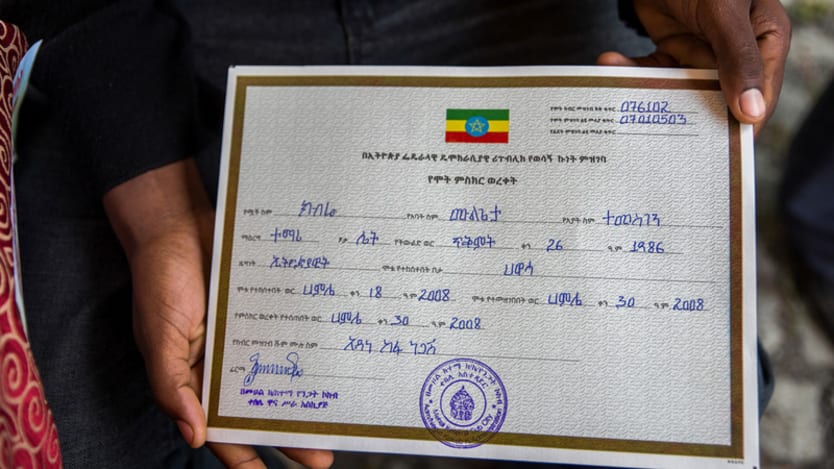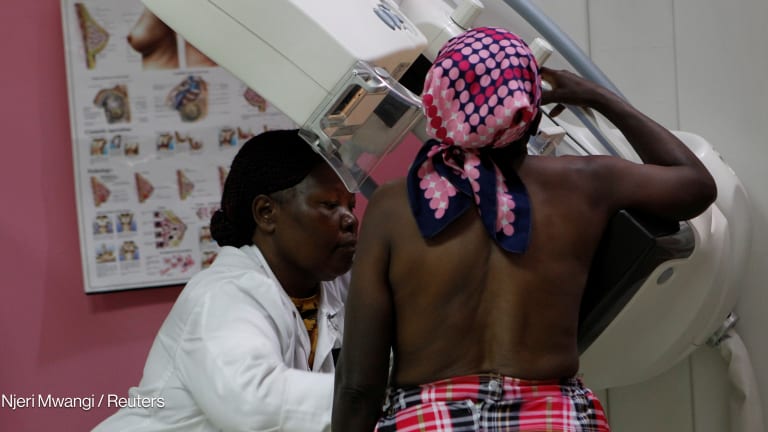
NEW YORK — Gaps are closing across some low- and middle-income countries in recording mortality, but more work is needed to understand comprehensive demographics — as well as the actual cost of weak recording systems, according to public health experts.
Public health and mortality specialists convened in New York last week to evaluate progress and continued challenges tracking mortality during the midway check-in for Bloomberg Philanthropies’ Data for Health initiative, a four-year, $100 million project working to improve health data in 20 countries.
A large portion of global deaths are not logged through civil registration — somewhere between one-third and nearly two-thirds of total deaths, according to estimates. Those rates rise when considering the approximately 80 percent of deaths that happen at home that go untracked, according to United Nations estimates.
“These countries do not know who is dying of what, let alone what format the data is in,” explained Alan Lopez, a global health and burden of disease expert who previously served as the chief epidemiologist at the World Health Organization.
This matters on both individual and broad public health levels when it comes to “getting health systems right,” according to Philip Setel, the director of civil registration and vital statistics at the global health nonprofit Vital Strategies, which works with Bloomberg on this program.
“Investment in getting better data, we believe, is ultimately a cost saver.”
— Philip Setel, director of civil registration and vital statistics at Vital Strategies“While the presentation of a death certificate does not protect the person who has died, it can protect a woman from being kicked off a plot of land because she can prove her relationship to her deceased husband and can retain the land as a result,” Setel told Devex. “When we think about the cost of getting the knowledge, we have to think about how much money is being lost, wasted on health programs that are not evidence informed. Investment in getting better data, we believe, is ultimately a cost saver.”
Since the initiative launched in 2015, data quality analysis work and trainings of local health workers to administer “verbal autopsies,” have helped countries such as Myanmar and the Solomon Islands better understand what is driving deaths among their populations. Diabetes and stroke are leading causes of death in the Solomon Islands, for example, not malaria, diarrhea, and measles, as previously thought, Lopez said.
But the work is still “early days,” Lopez said, adding that the full effects of the initiative are not yet clear.
“The problems we are talking about are fundamental. There are three things: We want to fix the certification of deaths in hospitals, so countries can have the confidence in all places when they certify deaths they are getting it right,” Lopez said. “They don’t get it right — they get it systematically wrong, so we are trying to work on that.”
Q&A: Dr. Death on Australia's leading role in data for health
Professor Alan Lopez is sometimes called Dr. Death. But the moniker is one Lopez embraces. For him, the name demonstrates his four decades as an epidemiologist are making a difference. Today, his work focusing on cause of death statistics is at the core of the Data for Health Initiative, which is helping developing countries collect the data that improved health systems desperately need.
Other priority areas are recording deaths and causes of mortality among people who die outside of hospitals — a common occurrence in many developing countries. Improving data analysis and using data properly are also key, according to Bloomberg Philanthropies’ experts and partner organizations representatives.
“Some countries have no system for collecting death data. Mali is a good example — they have the beginnings of something in place, but a long way to go,” said Jennifer Ellis, the director of the Data for Health initiative. “But most of our countries fit in that second box, meaning they have some basics in place, but are a long way to go until they are fully functioning.”
Global public health experts initially helped identify which countries would be interested in boosting their birth and death recording systems, marking a reversal from other Bloomberg Philanthropies programs, which have tried to convince countries that initiatives — like work on smoking prevention — would be right for them, Ellis said.
The initiative’s actual work involves engaging with local experts on boosting data quality, and training health workers to perform verbal autopsies, where health workers interview family members about the symptoms of the deceased and then plug the symptoms into a system that calculates the likely cause of death.
“Access is one problem, and the technical capacity to do verbal autopsy work, correctly certify causes of death is another,” Setel said. “Computer algorithms look at [symptoms] and it has been validated. It is crude, but it does get the top 10 priorities right, in terms of what is killing kids and women and young men.”
Some 3,999 people from 16 countries were trained to improve birth and death data as of last year. And four countries — Brazil, Myanmar, Rwanda, and Sri Lanka — began collecting information on deaths that occur outside of hospitals.
It is estimated that new birth and death certificate systems the program is helping develop will benefit an additional 250 million people, as Devex previously reported.
Existing government data, meanwhile, presents both an opportunity and challenge as governments work to strengthen their existing systems, or to create new ones.
“What we are finding is governments have a lot of data, and from many sources,” said Adam Karpati, the vice president for public health programs at Vital Strategies. “There is a lot of information and insights that can be gained from data and there a lot of ways to leverage information, from inside and outside the country, as we are helping countries improve their data.”
Abundant data — and the suspected need for large investments to improve the quality of the material — can sometimes feel overwhelming for health ministries, Ellis said. But changes don’t have to come at a very expensive price tag, she added.
“Countries say, ‘We have been scratching our heads for a while to improve our death and birth registration system, looking at the big list of things we can do.’ We come in to say, ‘All of that is important, but let’s look at the small things we can do now that can make big improvements,’” Ellis said. “I think the biggest challenge is getting past the myth you have to do everything all at once. It does not have to be a 10-year, $500 million fix. It can be a four-year, couple of million fix [that] you will see big results from.”








